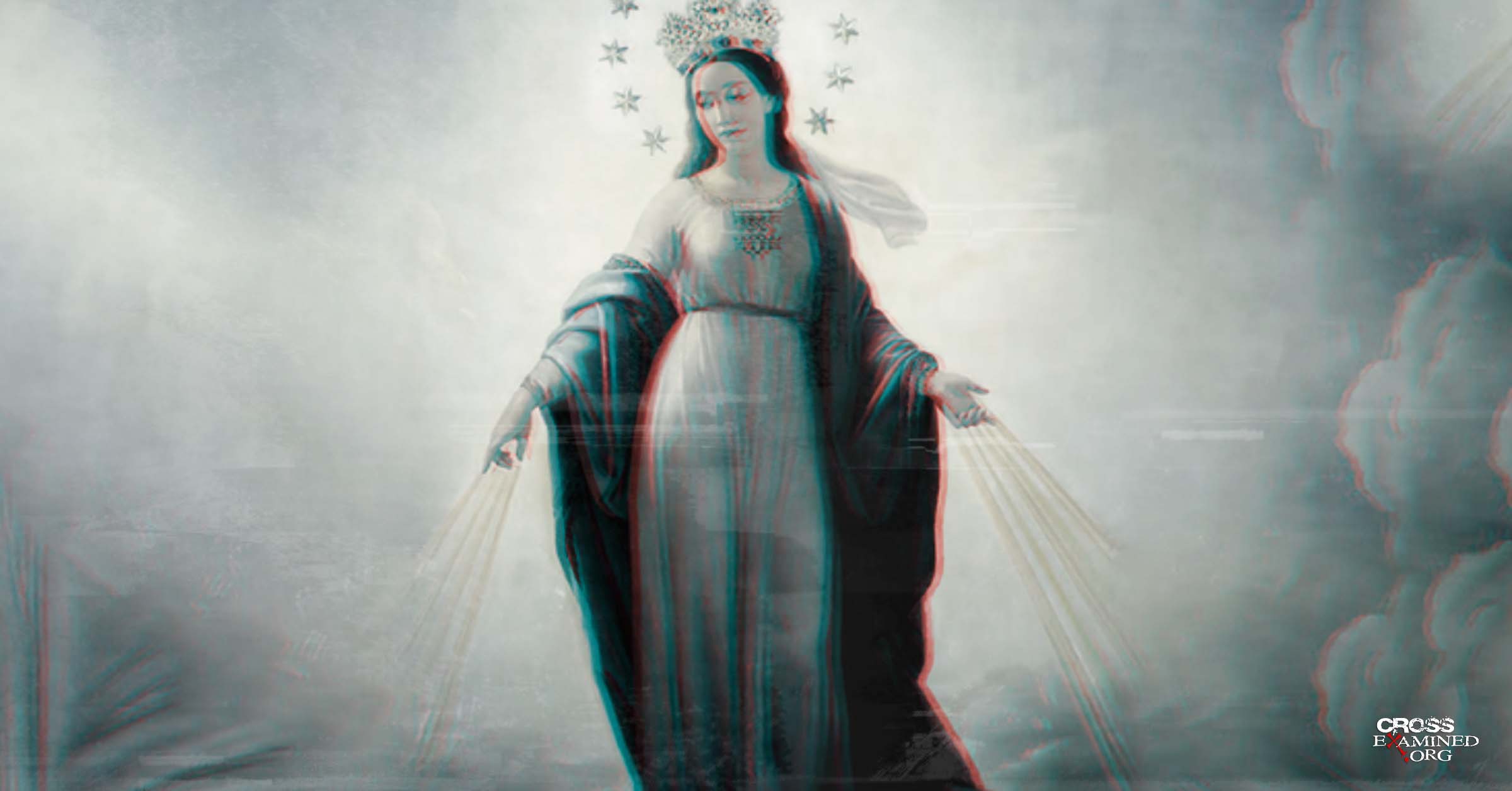The Magna Carta of Humanity: Sinai’s Revolutionary Faith and The Future of Freedom
In today’s world it is difficult to be online, at parties, with family, at work, or even just in public without hearing about the current cultural and political climate in the United States. Even if the Christian case-maker tries to avoid politics, they still confront culture and will be challenged with the hypocrisies of the Church and those who claimed to be members of the Church who just happened to also have founded The United States of America. And it is rare that challenges stop there.
People are passionate about one political view (or party) or another. Extremes on the different sides constantly accuse opposing sides of trying to destroy democracy, the Constitution, and even freedom itself. The rhetoric and apparent goals of different politicians can get our heads spinning out of control as we try to make sense of what is going on, how it affects us (and our future), what we can do about it to bring some measure of sanity in the conversations we inevitably get sucked into, and how we can respond logically with both gentleness and respect when the challenges come.
That is where I have found great value in Os Guinness’ “The Magna Carta of Humanity” (Hard copy, audiobook, Kindle). Guinness digs into the foundations, principles, and histories of the cultural and political divide in America. He compares and contrasts them in such a way that brings crystal clarity to the current situation. He points out that before we can even talk about “make America great again” (MAGA), we must truly understand what made America great in the first place. And before anyone wishes to reject the ideals that founded America, they must first truly understand those ideals and truly understand the implications of the ideals they are trading them for.
In my effort to help you determine if this is a book that is worth your time (and I believe it is), I will include a few of the skeletal points of the book, several of my favorite quotes (mainly from the Introduction- I don’t want to spoil too much), and my more specific recommendations.
My Awareness
I have to start with the podcast that drew my attention to this excellent book. Alisa Childers interviewed Dr. Os Guinness on her podcast (a great podcast that I highly recommend on its own, by the way) about whether or not Christians should be involved in politics. He not only answered in the affirmative but answered why that is the case and how America (and the world) has reached the point that such action is necessary. Here is the video:
Upon completing the podcast, I immediately purchased the audiobook and listened to it twice then picked up the hard copy to do a more analytical reading. This helped me to better grasp, understand, and appreciate the case presented by Guinness. It was definitely worth the additional time and effort spent.
Key Points:
- The division in the USA today is due to two mutually exclusive views of freedom.
- The first originates from the Exodus and was the foundation of the American Revolution of 1776. This view understands freedom as the individuals possessing the power to do what they ought to do. (“Sinai”)
- The second view of freedom originates with ancient atheists and was the foundation of the French Revolution in 1789. This view understands freedom as individuals possessing complete autonomy. (“Paris”)
- Paris, along with its many offshoots, have all proved disastrous for human life and liberty. Whereas Sinai (even when applied inconsistently) has been the only one that has resulted in true liberty.
- Paris fails (and will continue to fail) because it has a false understanding of both the dignity and fallenness of humanity. On the contrary, Sinai recognizes these realities at its core.
- The freedom of Sinai, though, is not self-sustaining. It requires individual self-awareness and focused and intentional dedication of each succeeding generation if it is to be maintained for future generations.
- America must recognize the sins of its past and move forward. The way forward proposed by Paris (and the progressive left) is that of hate and revenge. While the way forward proposed by Sinai and Jesus (and even Martin Luther King Jr.) is that of love and forgiveness.
- Because freedom is incompatible with hate and revenge, the way of Paris necessarily offers no hope of true freedom now or in the future. It pays lip service to the term while insisting on a contradictory concept.
- America is currently in the process of switching from the ideals of 1776 to the ideals of 1789, and it, along with its citizens, will suffer the same fate as all the other nations that have tried its numerous versions (including Russia, China, and North Korea).
- There is still time for America to stop the current trajectory and reclaim the love and forgiveness that is required of true freedom and reject the hate and revenge that has done nothing but prove disastrous.
Favorite Quotes:
“The great American republic is as deeply divided today as at any moment since just before the Civil War. Yet this time no Abraham Lincoln has stepped forward to address the evils, appeal to the Declaration of Independence, defend the better angel of the American character, demonstrate the magnificence of ‘government of the people, by the people, for the people’ in our time, and call for a ‘new birth of freedom.'”
“America appears to be abandoning the ideals of the American Revolution or ideas that are disastrous not only to America but to freedom and to the future of humanity.”
“The American crisis is a crisis of freedom and must be understood as such…The present crisis stems from the fact that over the last fifty years, major spheres of American society have shifted their loyalties and now support ideas that are closer to the French Revolution and its heirs rather than the American Revolution.”
“Such current movements as postmodernism, political correctness, tribal and identity politics, the sexual revolution, critical theory (or grievance studies), and socialism all come down from 1789 and have nothing to do with the ideas of 1776…They are the *dramatis personae* without which the drama of America’s current crisis cannot be understood or resolved.”
“The United States is suffering from profound philosophical cynicism, moral corruption, and serious social collapse…And too many Americans, especially those who are younger, have already been bewitched by the ideas coming from the other revolution, 1789, and not 1776…they now appear hell-bent on rejecting ideas from their past, which they have not tried to understand, even as they embrace ideas from the other revolution, which they have not examined as closely as they need to. Many in America see only their ancestors’ errors and at once think that makes them wiser and better than their ancestors. Yet they do not try to understand what their ancestors thought and why, let alone ask where the alternative ideas will lead them.”
“The Russian and Chinese revolutions represented the first successful establishment of secularist regimes in history; the Russian doing so in Europe and the Chinese in Asia. Along with Hitler’s Germany, the Russian and Chinese revolutions were also the first regimes to produce genuine totalitarianism. With the horrendous quartet of their total ideology, total mobilization, and total surveillance, and total repression, these totalitarian regimes became the epitome of oppressive evil and the complete denial of liberty.”
“Far from ushering in the final form of freedom and representing a second coming of Epicurus, [the French, Russian, and Chinese Revolutions]’ claims to be the true and reliable source of human freedom have been left in tatters by the history of their repressive secularist regimes in the twentieth century and the slaughter of millions of their own citizens.”
“Is it still possible in the advanced modern world to build societies with both freedom and order at the same time? To build and sustain communities and nations that demonstrate the highest values of human dignity, freedom, justice, equality, compassion, peace, and stability?”
“Historically, it was the Exodus Revolution and not the French Revolution, that lay behind the genius of America’s ordered freedom or covenantal and constitutional freedom. A rediscovery of the foundational principles of the Exodus Revolution is therefore the once and future secret of true revolutionary faith and a sure path to freedom, justice, equality, and peace.”
“The…American Revolution [is] decisively different from the French Revolution, and the future of freedom depends on appreciating the differences and choosing between them.”
“America cannot endure permanently half 1776 and half 1789. The compromises, contradictions, hypocricies, inequities, and evils have built up unaddressed. The grapes of wrath have ripened again, and the choice before America is plain. Either America goes forward best by going back first, or America is about to reap a future in which the worst will once again be the corruption of the best.“
“Will the coming generation return to faith in God and to humility or continue to trust in the all-sufficiency of reason, punditry, and technocracy and the transformative power of politics?”
“The future for freedom and humanity is in the balance, as Sinai spells freedom for the future whereas Paris has so far spelled out freedom betrayed and the coming of a long night of expanding statism, surveillance, and repression.”
“This is not a plea for some special protection or exemption for faith. It is time and past time to set out the debate in its fullest terms and to recognize that the sequel to this generation’s choices will be consequential and historic.”
Recommendations:
While I believe that every reader, who takes the time to read the book seriously, would have much to gain from it, I do believe this book is of special interest for several groups:
- Anyone who is involved in political discussions online or in person. Having a firm grasp on the sources of disagreement will guide us in how to address those disagreements. Recognizing areas of agreement will build a bridge that those we disagree with can cross to accepting the truth that we wish to communicate. Having those of these in our minds will help keep us calm, respectful, loving, and confident in discussion and will keep the discussion focused and productive.
- Any scientist. When untrained and unlearned politicians sense a threat to their power, they will censor scientific research and the scientists (even if the research doesn’t legitimately provide a threat). Scientists will not be permitted to do research freely nor will they even be able to pretend to (much less, actually) follow the evidence where it leads. This is the way of Paris and 1789. All these naturalists and New Atheists who think that “science” is the end-all/be-all: they are about to reap a world that will destroy everything they have worked for, everything they are working towards, and everything they cherish. Not because they conceded to belief in God and man’s sinfulness, but because they explicitly rejected God and his moral authority over all individuals including those in government who have power over them. Let’s also not forget that this is not limited to politicians; it extends to corporations and those in power there as well. This similarly applies to any educator, researcher, and creative.
- Anyone who supports the views of postmodernism, Critical Theory, tribal politics, identity politics, Marxism, socialism, and/or communism. Dr. Guinness shows how hate and revenge are at the core of these ideas and that history demonstrates that each of these ends in disaster for the individual who holds to them and nations that rule by them, no matter how they are applied; and any “new” ideas of how to apply them are doomed to fail as well.
- Private and Home Educators. It is important that American and World history be taught with an eye to its application to the children we are teaching. We teach history not merely for trivial information, but so that our children will not make the same mistakes of the past. Freedom is not self-sufficient. It must be taught and applied to the world around our children so they can see the importance of this part of their education and what will happen is they too become “bewitched” by the glitter of Paris. Also, if there ever was a time to teach students the evidence for Christianity, it is today (see Christian apologists and theologians below).
- Christian apologists and theologians. Os Guinness’ discussions and case depend highly upon the truth of several ideas that Christian apologists commonly (and maybe not so commonly) defend, thus he gives renewed urgency in showing these to be true to the world. They include: Obviously, God’s existence, but also man being created in the Image of God, human fallenness, trust (biblical faith and not blind faith), objective morality, human dignity, human equality, libertarian free will (properly understood, of course), the historicity of the exodus, truth, knowledge, and numerous more that I’m sure you will see as you come across topics you frequently address. Also, the utopian promises of Paris cannot ever be fulfilled by anyone or any government because they are false and do not reflect reality. It is important to show others that these are false so that they do not continue to trust the claims of Paris and its off-shoots and reap its consequences. Ultimately, this book can serve as a highlight several strong, basic human desires- freedom and justice that cannot ever be fully and perpetually fulfilled in this life because of sin; it is only through the atonement of Jesus Christ and the truth of his resurrection that there is ultimate hope for love and forgiveness now perpetually the future when He returns.
- Pastors and Church Leaders. In today’s culture that is accepting a “progressive” and false gospel that is often grounded in postmodernism and is focused on social justice and politics, it is important to see the differences between those ideas that are sneaking into the Church, how they differ from Scripture and the world we live in, and the disastrous results if your congregation accepts them. You do not have to have a bent towards the political in your church, just a passion for truth and defending it (see Christian apologists and theologians, above)
Recommended resources related to the topic:
Counter Culture Christian: Is the Bible True? by Frank Turek (Mp3), (Mp4), and (DVD)
I Don’t Have Enough Faith to Be an Atheist (Paperback), and (Sermon) by Norman Geisler and Frank Turek
____________________________________________________________________________________________________________________________________________________
Luke Nix holds a bachelor’s degree in Computer Science and works as a Desktop Support Manager for a local precious metal exchange company in Oklahoma.
Original Blog Source: https://bit.ly/3HuzZDT










